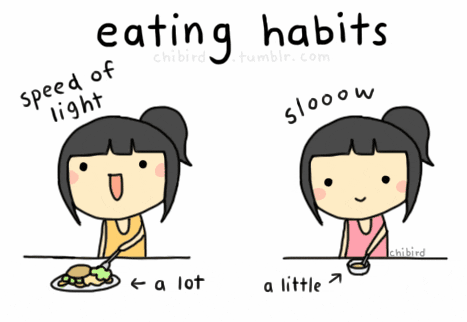Emotional eating can happen to all of us. It occurs when you are suffering from various conditions, including but not limited to work stress, relationship problems and financial matters. And yes, even the current environment (read: COVID-19) can lead to emotional eating as well. All of these negative thoughts and feelings tend to make us crave for comfort foods, which can be fatty or sugary. Fortunately, there are ways to deal with this. Below are the 7 Strategies You Can Try To Avoid Emotional Eating.
1) Practice Mindful Eating
Sometimes, it’s easy to get confused between eating emotionally and eating because you are actually hungry. The former can lead to mindless eating, which occurs if you are distracted and unaware of the amount or type of foods you have consumed.

But mindless eating also happens due to a certain emotional trigger such as feeling sad or bored. Your solution? Practice mindful eating by learning how to slow down and enjoy your food. Also, eliminate unwanted distractions like not playing with your smartphone while eating.

2) Maintain A Consistent Eating Schedule
Let’s face it, irregular eating habits lead to more harm than good. Doing so on a regular basis may affect your internal body clock. Not to mention cholesterol, weight and even your insulin levels. So, to prevent overeating or mindless eating, create a schedule and stick to it. That schedule in question refers to a certain time for breakfast, lunch and dinner. By keeping a consistent eating schedule, you would do your body a huge favour to regulate hunger hormones and blood sugar.

3) Always Stay Hydrated
Drinking water isn’t just about quenching your thirst. Not only you need it to regulate your body temperature but also to prevent constipation and improve cognitive function. And that is not all, as keeping yourself hydrated throughout the day can minimise the cause of emotional eating. Here’s why: When you don’t drink enough water, you may end up eating more or mindlessly than you should. But the truth is, you are actually suffering from dehydration.

4) Do Something Productive To Kill Boredom
Feeling bored because the COVID-19 pandemic has messed up your usual routine? Don’t let your boredom dictate you into ruining yourself with emotional eating. There are many ways you can do to fight off boredom by catching up with your friends say, via Zoom meetup or learn something new online. By keeping yourself busy and productive, you are less likely to fall prey from eating emotionally.

5) Learn How To Deal With Stress
Stress sucks. But it would be impossible not to have stress at all. Because stress has its own advantages, namely motivating you in accomplishing your task or goal as well as increasing alertness and improving memory function.

However, too much stress can lead to emotional eating and you can overcome the problem by dealing with it. It could be anything from reading a good book to practising yoga and watching your favourite movie online.

6) Keep A Food Diary
Taking notes of everything you eat on a daily basis sounds like a tedious task. But it does help to analyse the types of food and drinks you have consumed, particularly the ones that constantly lead to emotional eating. You can jot them down the old-fashioned way on your notebook or even type them on your smartphone’s notepad. Alternatively, there are plenty of food diary apps available, namely See How You Eat (Android, iOS) and Ate (Android, iOS).

7) Minimise Temptation
Ever noticed whenever you are feeling blue, you are more likely to snack on comfort food? By comfort food, it can be anything from cakes and cookies to potato chips, ice cream and sugary snacks. While it’s okay to snack on them in moderation, eating these food excessively and emotionally would jeopardise your health in the long run. What you can do here is not to make it a habit to stock up these types of comfort food at home. And even if you have them already, try taking smaller portions or replace junk food with healthy snacks instead (e.g. fresh fruit, unsalted almonds or yoghurt).
















